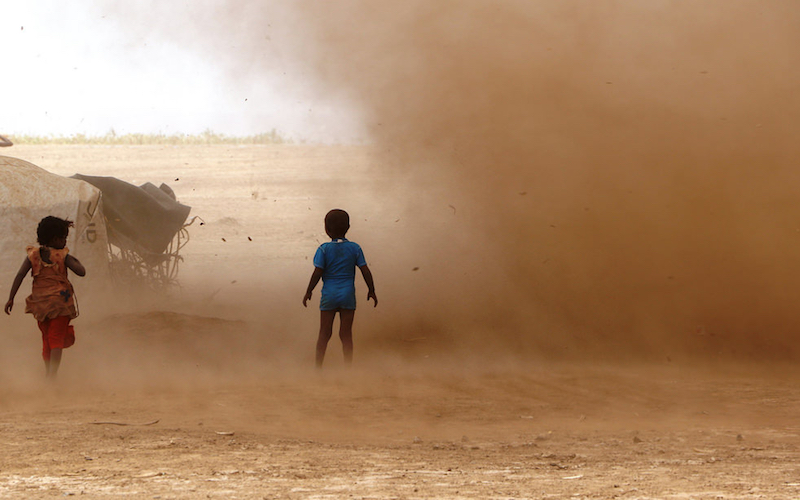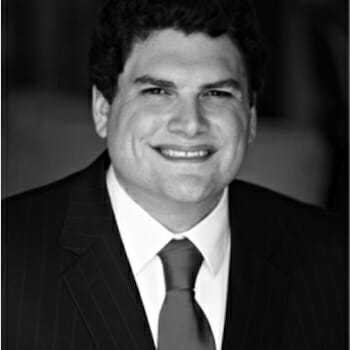
Fresh Drought in East Africa Heralds New Wave of Refugees
As the grim specter of drought raises its head once again in East Africa, compounding a raft of other political and economic problems in the region, the EU needs to find new ways of bringing about stability in that part of the world if it wants to halt the tides of refugees that continue to land on its shores. About 34 million people in East Africa have been hit hard by drought conditions, with several countries having seen little rainfall over the past year. Experts grimly predict that the situation will only worsen in 2017.
The developing humanitarian crisis, which has been exacerbated by the El Niño effect, has left some 12 million people in need of food aid across Kenya, Ethiopia and Somalia. Cattle farmers, who have already lost more than 100,000 head of livestock to hunger, have seen prices drop as the remainder of their emaciated animals fetch less on the market. The knock-on effect has been a rise in food prices, thus intensifying the hardship.
Africa itself houses almost 5 million refugees – a startling figure that makes that 1.3 million Europe received in 2015 pale in comparison. Ethiopia has the largest population of refugees, some 700,000 people who fled conflict in South Sudan, Somalia and Eritrea. These refugees have to contend with locals for limited food resources, housing, jobs and health care, putting even more strain on the already cash-strapped Ethiopian government.
Apart from the humanitarian concern the drought raises, it also presents a political challenge for European governments if people from the affected region begin making the perilous journey north towards Europe. Although the EU’s opportunistic deal with Turkey last March is credited with the 79 percent drop in migrants entering Europe through Greece in 2016 over the previous year, some of the traffic has shifted to the Italian route which has seen a rise of 20 percent to 181,000 people. This central Mediterranean passage which transports mainly sub-Saharan Africans, including many from the drought-hit east of the continent, recorded more than 5,000 deaths in 2016, a huge increase on 2015, despite the lower numbers attempting to reach Europe overall.
Tragically, with instability in sub-Saharan Africa set to continue in 2017, the political climate in Europe looks even more uninviting for those who are willing to risk everything to cross the continent and the Mediterranean Sea. Elections in the Netherlands, France and Germany will largely be fought on the issue of immigration with strong showings, if not outright victory, predicted for right-wing parties in each of these countries. Alan Kurdi’s death and the massive uproar caused by the picture of the three-year old washed ashore in Turkey seem now all but forgotten.
Recognizing that the wave of populist anger being ridden by the Europe’s right-wing populist parties was a direct result of her open-door policy to migrants entering Germany, Chancellor Angela Merkel has decided to try a different approach to the problem. Taking the opportunity presented by Germany’s turn as president of the G20, Merkel forwarded her plan to address the causes of emigration at their source in the hope of lowering the numbers of migrants arriving in Europe. To highlight this point, the Chancellor made her first trip to Africa in five years last October, touching down in Mali, Niger and Ethiopia, promising increased investment and security cooperation along the way.
While this new emphasis should be welcomed, a more strategic approach is required if Europe is truly to improve the livelihood of vulnerable African communities and provide them with better opportunities at home. Encouraging steps in this direction were taken last April with the launch of four major initiatives on food security, focusing on resilience to global food crises, agri-finance, nutrition and agricultural research. In Ethiopia, which faces a food shortage crisis, the EU could do more to support the government’s ambitious agricultural transformation program. The initiative, which aims to raise the productivity of smallholder farmers and cattle herders through research investment and knowledge sharing could benefit massively from EU assistance and, if successful, go a long way towards Merkel’s goal of treating the migration problem at its source.
Another area where the EU could help Africans help themselves is with the scourge of illegal fishing off the East African coast, which robs locals of a livelihood, not to mention a scarce source of protein. With the problem reaching critical levels as Chinese trawlers sweep hundreds of millions of dollars’ worth of fish from African waters each year, France has finally stepped in to provide concrete support for struggling maritime nations. This has come in the form of joint patrols carried out with Tanzania, Mozambique, South Africa, the Comoros, and Madagascar. In 2013, Mozambique took a further step and bought patrol and fishing boats from a French company in order to protect its waters and boost its fishing capacity.
Lastly, but perhaps most importantly, the EU should never waver in its commitment to promoting democratic norms in the countries it engages with. By so doing, Brussels would make sure that those states have the capacity to help themselves and act as economically viable partners.
Otherwise, all the aid and all the special assistance programs will amount to precious little. Despite its welcoming stance towards refugees, Ethiopia is one of the most repressive countries in Africa and struggles to attract foreign investment. Niger, another country that has received millions in EU aid because of its strategic position, is in a similar situation. As for Mozambique, which has long bemoaned the difficulty in patrolling its own waters, the government is embroiled in a row with international partners for its failure to exploit its new surveillance capabilities, including search vessels and its new fishing fleet, which are gathering dust in Maputo’s port rather than earning money as had been originally proposed.
If Europe wants to get serious about dealing with the causes of African migration at its source, then these are the kinds of efforts it needs to make, on an EU-wide level and working with African governments in a long-term strategic partnership. Failure to do so will leave Europe at the mercy of both unsustainable waves of immigration and the xenophobic political backlash that this engenders.

